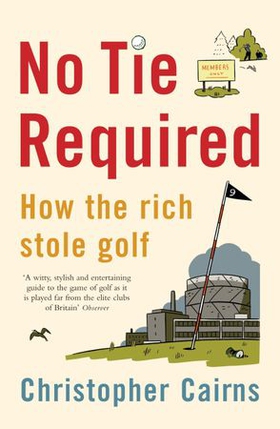
No Tie Required ebok
Andre har også kjøpt
No Tie Required is an entertaining journey across Britain, celebrating the wonderful, eccentric and historical public courses where no club membership is required. Not for Chris Cairns the member's door and the pink gins of the 19th hole. Instead the author has sought out the country's pay-and-play courses in order to experience how non-members get their golfing fix.
Public courses in Britain come in just about every shape and size: from picturesque honesty box courses in the Highlands, to converted potato fields in Essex and over-crowded city parks in London. At all these courses there are regulars who play in all weathers and who are happy to tell their stories. Behind the author's journey - apart from the joy of playing and sharing a pint or two with the locals - is the desire to trace the history of why the game's origins have been so badly relegated in status. Today a handful of highly exclusive private members clubs seem to dominate the image of golf. Is this justified? Or is the 'them and us' approach a fiction in today's Britain?






